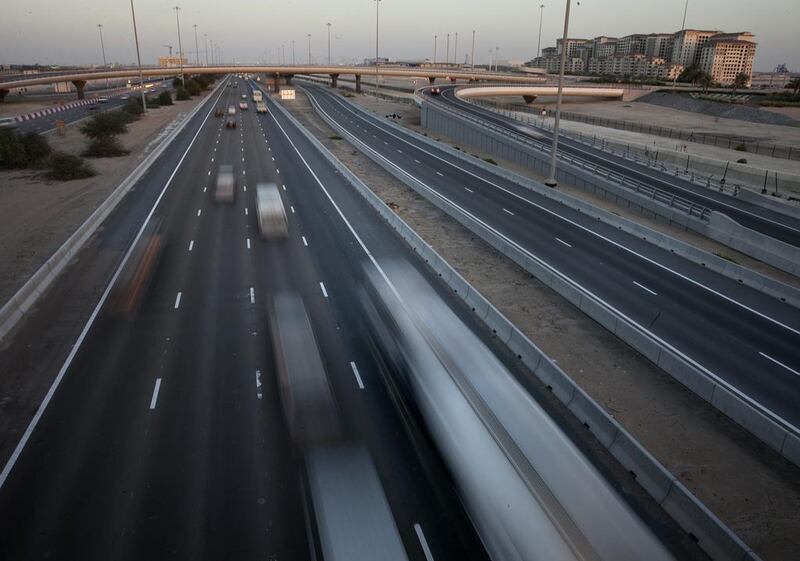ABU DHABI // A series of initiatives to cut the number of road deaths and accidents over the past years have been praised by road safety experts.
Campaigns have included raising awareness about drink driving, speeding, pedestrian and cyclist safety, and reckless driving.
“The issue of traffic safety is attracting more attention than before,” said Salaheddine Bendak, an associate professor at the University of Sharjah who specialises in road and occupational safety.
“Many organisations and government agencies are becoming better organised and prepared to tackle road safety issues.”
The first Ministry of Interior road-safety campaign of last year focused on pedestrians.
The campaign, Pedestrian Safety is our Responsibility, ran between January and March and was organised by the traffic coordination department in conjunction with traffic and licensing directorates and more than 20 stakeholders in the private and public sectors.
The aim was to improve curb pedestrian injuries and boost long-term efforts towards crash-free roads.
Two serious offences include jaywalking and not giving way to pedestrians, Brig Gen Ghaith Al Zaabi, head of the general directorate of traffic coordination at the Ministry of Interior, said last January.
In March, more than 2,000 students at five Dubai universities attended lectures and tried a simulator as part of efforts to promote safe driving habits among youth.
The week-long campaign was launched by FedEx Express and was supported by Dubai Police and the Emirates Motor Sports Federation.
Government officials, contractors and consultants discussed emergency management, safety strategies and public education at the Abu Dhabi Road Safety Forum in May.
The Injury and Poisoning Notification System has enabled Health Authority Abu Dhabi to collect, analyse and report data from health centres.
The system helps to develop preventive measures by identifying where and when accidents happen, and who is most at risk.
Abu Dhabi Municipality, which is responsible for the building and maintenance of internal roads, introduced a variety of initiatives to boost road safety near schools and for pedestrians and cyclists.
A traffic safety programme, Maan (Together), was launched by Abu Dhabi Police to reduce traffic-related accidents during Ramadan.
It tackled three topics – motorists, pedestrians and vehicle safety. The police also encouraged people to use seat belts, avoid using mobile phones while driving and obey traffic lights.
The Ministry of Interior launched a three-month traffic education campaign, Student Safety is Everybody's Responsibility, in September. The aim was to ensure drivers, parents and pupils are conscious of changes in traffic patterns.
Last month, road safety experts at the Gulf Traffic Conference 2013 in Dubai discussed better regulation of heavy vehicles, a code for road users and improving driver attitudes that were crucial to reduce crashes.
“There has been a tremendous decrease in road fatalities,” said Abdullilah Zineddin, a road safety expert in Abu Dhabi. “But we still have a long way to go.”
Campaigns to encourage motorists to wear seat belts, buckle children into car seats, and for pedestrians and motorists to have respect for each other on the roads are needed, he said.
rruiz@thenational.ae






